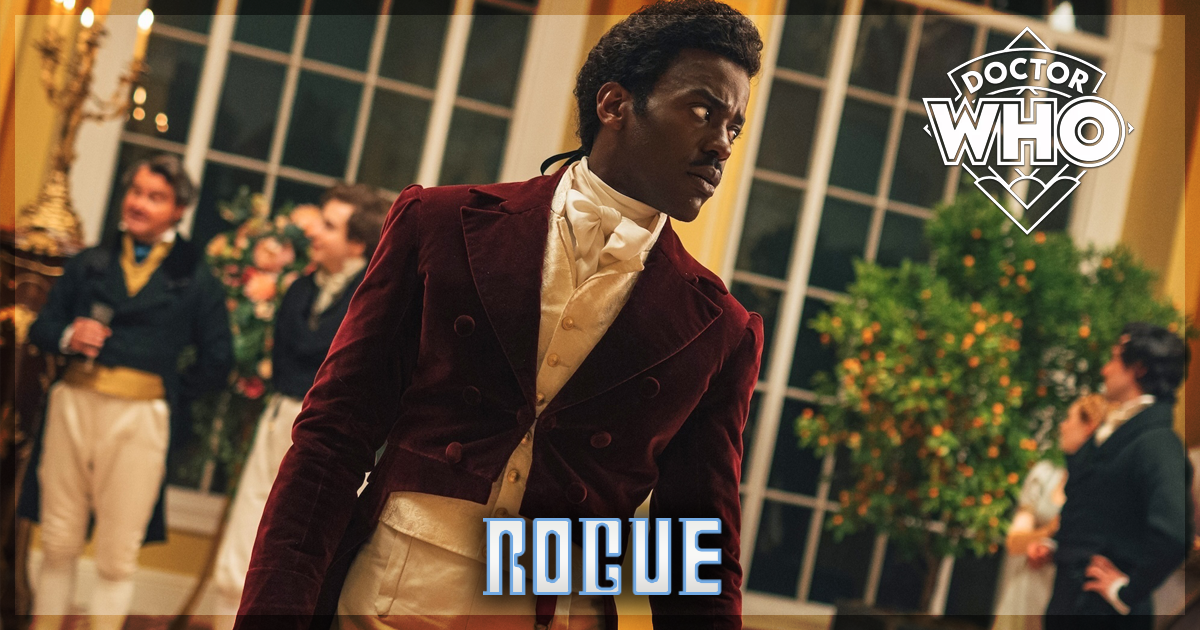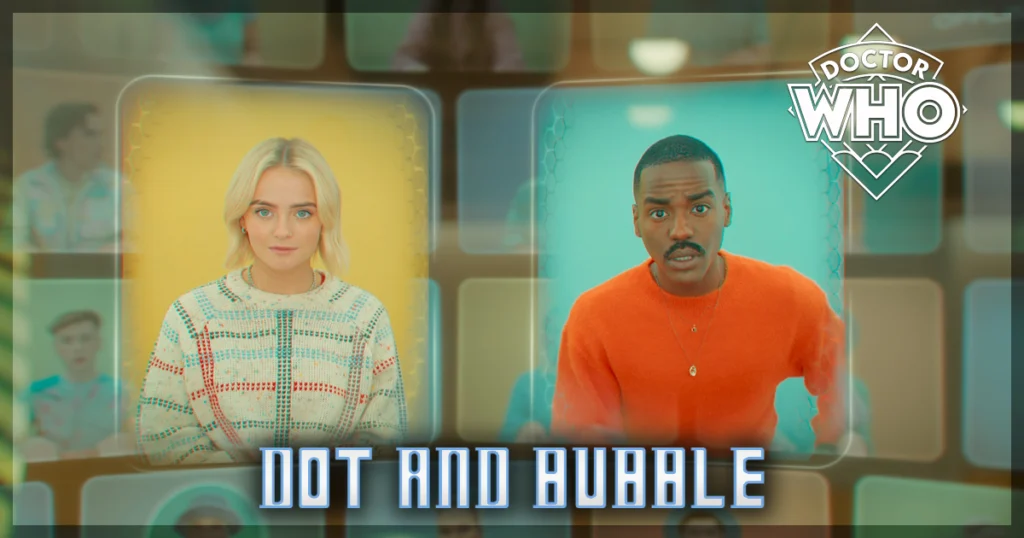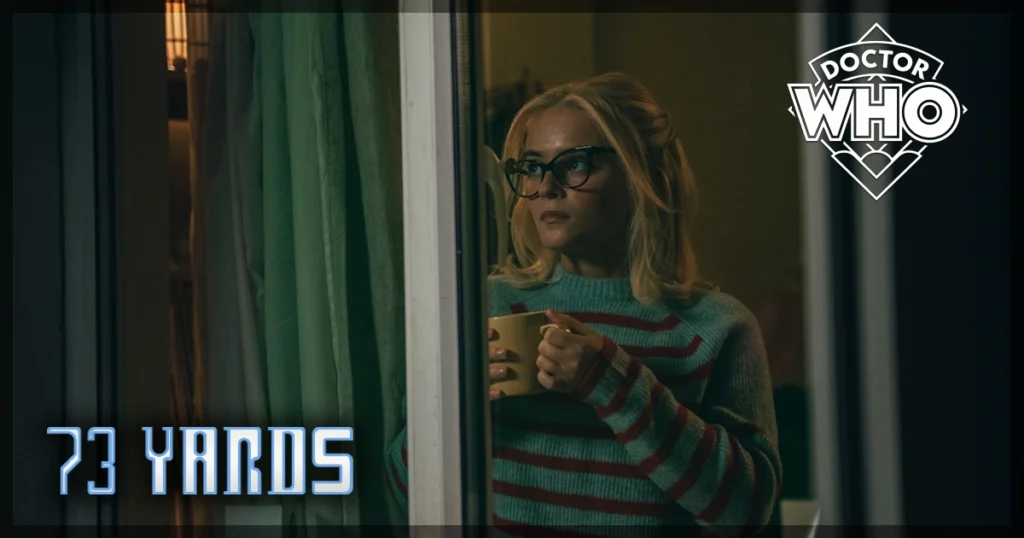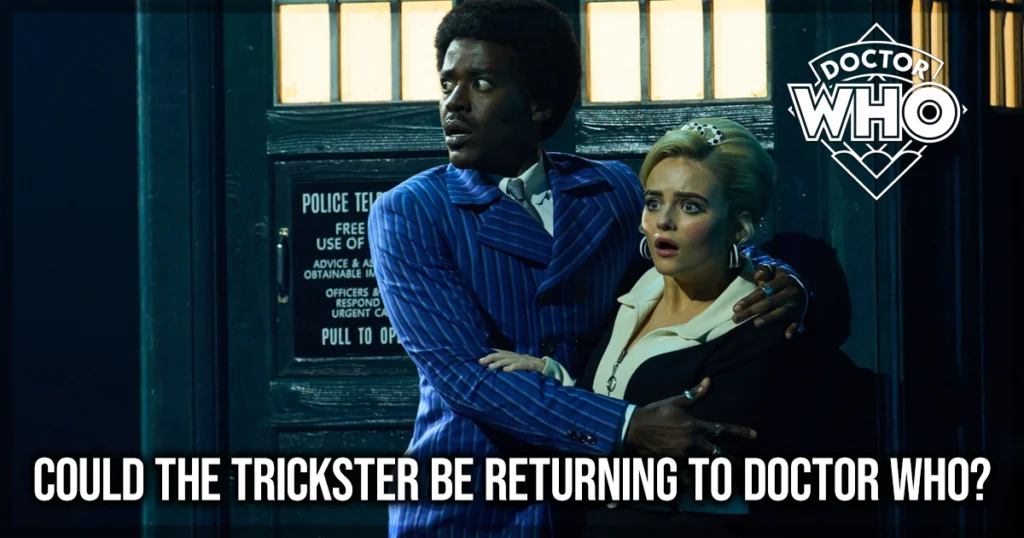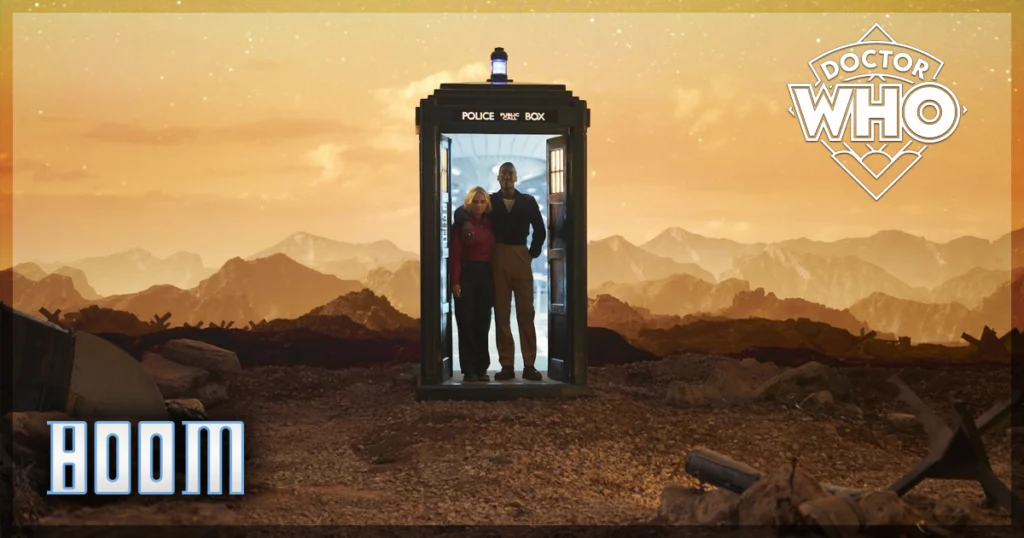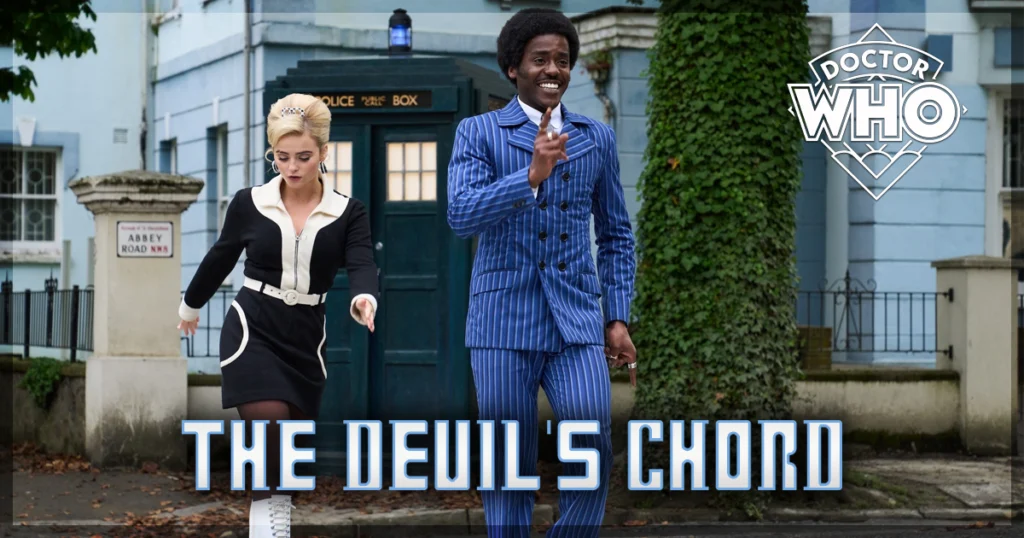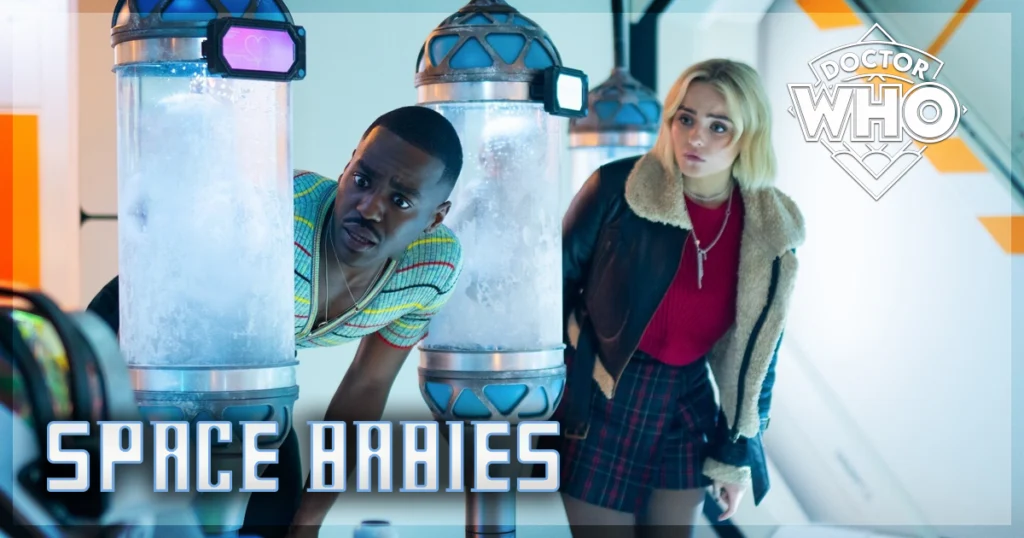Doctor Who: Rogue is the 6th episode of Season 1 with Ncuti Gatwa as the Doctor.
The 2005 reboot of Doctor Who has always had a romantic streak.. Assuming we discount the 1996 TV movie with Paul McGann’s iteration of the Doctor, Russel T Davies adjusted the show to have more focus on the Doctor’s interpersonal, often romanticized relationships. David Tennant’s Doctor happened upon crushes often, his double hearts proudly sewn onto his sleeves, all while being infatuated with companion Rose Tyler. Episodic love interests happened to the angsty time-lord often, such as with Madame De Pompadour in The Girl in the Fireplace or with Astrid in Voyage of the Damned.
When Steven Moffat took over, he doubled down on this in his tenure as showrunner, giving the Doctor a wife in the form of River Song. Previous showrunner Chris Chibnall continued this with Jodie Whittaker’s Doctor, sparking a queer romance at the heart of Jodie Whittaker’s final season with companion Yasmin Khan. The Doctor has been characterized as someone who is sexually inclined, but within Davies’ second tenure as showrunner, he has not yet shown Ncuti Gatwa’s Doctor as someone who has sex. Enter the sultry bounty hunter Rogue (Jonathon Groff), and the Doctor is once again smitten.
Doctor Who: Rogue is all very Bridgerton
Episode 6 of this season of Doctor Who, Rogue, cold opens in 1800s Britain, where the villain of the week, a shapeshifting creature called the Chuldur, is taking on the identities of aristocratic toffs. As Ruby Sunday (Millie Gibson) says, “It’s all very Bridgerton.” There has been a recurring theme this season where intertextual references are made. Davies is a regular for this, with series one episode Bad Wolf featuring the Doctor and companions within various reality TV programs and quiz shows, but this season has found references being made so regularly that a fan theory has begun; Ruby is manifesting these situations somehow. An episode that referenced Strictly Come Dancing ends with a big musical number, while a reference to Star Trek made someone appear on screen donned in classic Trek attire.
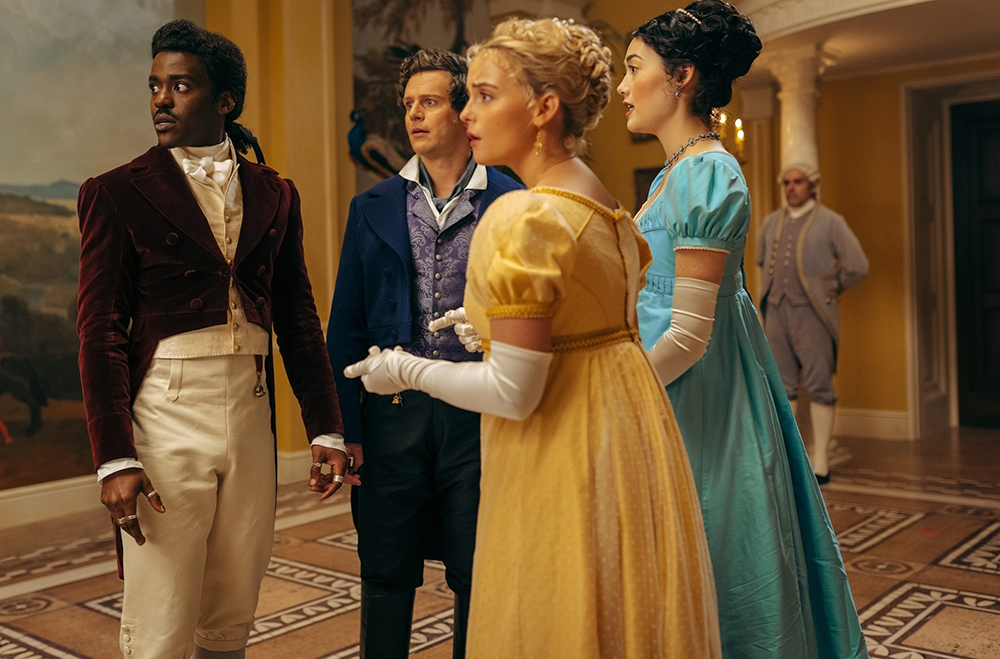
But it is all very Bridgerton, as Ruby and the Doctor (Ncuti Gatwa) gatecrash courting season, playing their own form of dress-up, inserting themselves into the lives of these people. That is until the Doctor spots Rogue, a dashing, brooding figure perched on a balcony, his eyes scanning for the exits. An attractive enigma will always catch the Doctor’s eye. Ruby continues playing dress-up with her Bridgerton fantasy while Rogue and the Doctor flirt away, each believing the other is to blame for the mysterious death that propels the villain-of-the-week plot forward until they begin working together to solve the mystery at hand. It might be very Bridgerton, but this is also very Scooby-Doo in tone.
Which is where the episode, one that is often a fun, sexy sci-fi frolic consisting of Kylie Minogue songs, cosplay, and feathered villains, needed so much more room to breathe. The chemistry between Gatwa and Groff reads MAX on the sexual tension barometer, but their dalliance leaves us all wanting much more time between them. It races into concluding the story, as its third act becomes contrived and rushed. It allows no time to let the Chuldur storyline – the villains of the piece insert themselves into dramatic moments as a form of cosplay, amusement at the death of others – parallel the Doctor’s own “fun,” the fun that made Rogue suspect them of being Chuldur in the first place. There is thematic meat left on the scriptural bones of Rogue, and there doesn’t seem to be a character lesson to be had here.
Gatwa’s characteristics become plot points
This is also the second episode in which a characteristic of Gatwa becomes a plot point. The Doctor and Rogue dance together, causing a queer scandal that lures out the Chuldur, while the Doctor’s race is a major point in Dot and Bubble. I’m excited for more episodes of Doctor Who that aren’t weaponizing characteristics of Gatwa beyond his control for thematic purposes. Chris Chibnall never used Jodie Whitaker’s queer relationship to expose bigotry, nor did Yasmin Khan’s sexuality or race become intrinsic to a story’s plot.
It’s a blast of an episode, though, and can be forgiven for not reaching the level of potential it could have reached. This is mainly through Kate Herron’s direction, who brings a little sexual whimsy to the drama. For my money, the Doctor slow dancing with Rogue as the lights fade away and they get swallowed up within the frame is the strongest directed scene of the season so far. Bringing on board Herron was an inspired choice, especially when taking into account how much conversation was held around the first season of Loki, of which she directed, feeling like a season of Doctor Who. Even the fake-out, where Herron’s visuals become an unreliable narrator isn’t egregious enough to ruin what is such a passionate, dashing sci-fi excursion.
Fearing being a broken record, Gatwa is such an excellent Doctor that I’m desperate for the writing to really match his stratospheric charisma. But as far as Hollywood guest stars go, Groff (best known for Frozen and The Matrix Resurrections) is easily a top-tier guest. He is arguably a stronger companion choice to Gatwa, as Gibson – who is excellent in the episode, seemingly comfortable in this era and in her ballgown attire – is still yet to really make her mark while her mystery box storyline (and whatever is happening with Susan Twist, who cameos again on a painting) is now struggling to capture the imagination.
Two lonely spacemen in Doctor Who: Rogue
Rogue himself is a swashbuckling, space travelling…well, rogue. The instant attraction Gatwa’s Doctor has for Rogue doesn’t just come from a sensual desire but in that, he sees Rogue as a kindred spirit. He plays a character not dissimilar to the Doctor, an often lonely spaceman who has lost their own companion. But Rogue is an interesting mirror to the Doctor, someone who is ethically flexible and willing to kill the Chuldur while the Doctor is resolute in his morals. If anything, Rogue is a reflection on David Tennant’s Time Lord Victorious, so the Doctor instantly recognizes Rogue as someone he can emotionally support. It’s a fascinating dynamic, but it is one that feels like it can’t and won’t go anywhere since Groff is too famous for a show like Doctor Who to keep on the payroll.
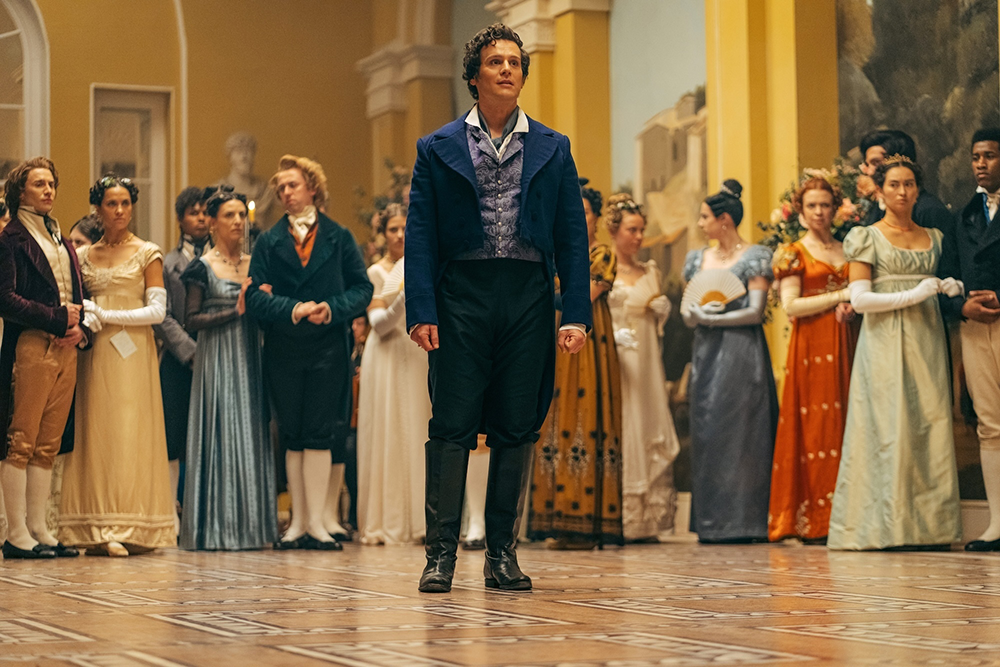
The two-part season finale that begins next week may shed some retrospective light on Ruby’s mystery, but after six episodes, I am finding there is still much more to be desired from her and if the mystery is worth the build-up. The next two episodes have a lot left to answer. While I’m hesitant to be too hopeful for catharsis, screen time with Gatwa’s Doctor excites me more than whatever answers we receive.

